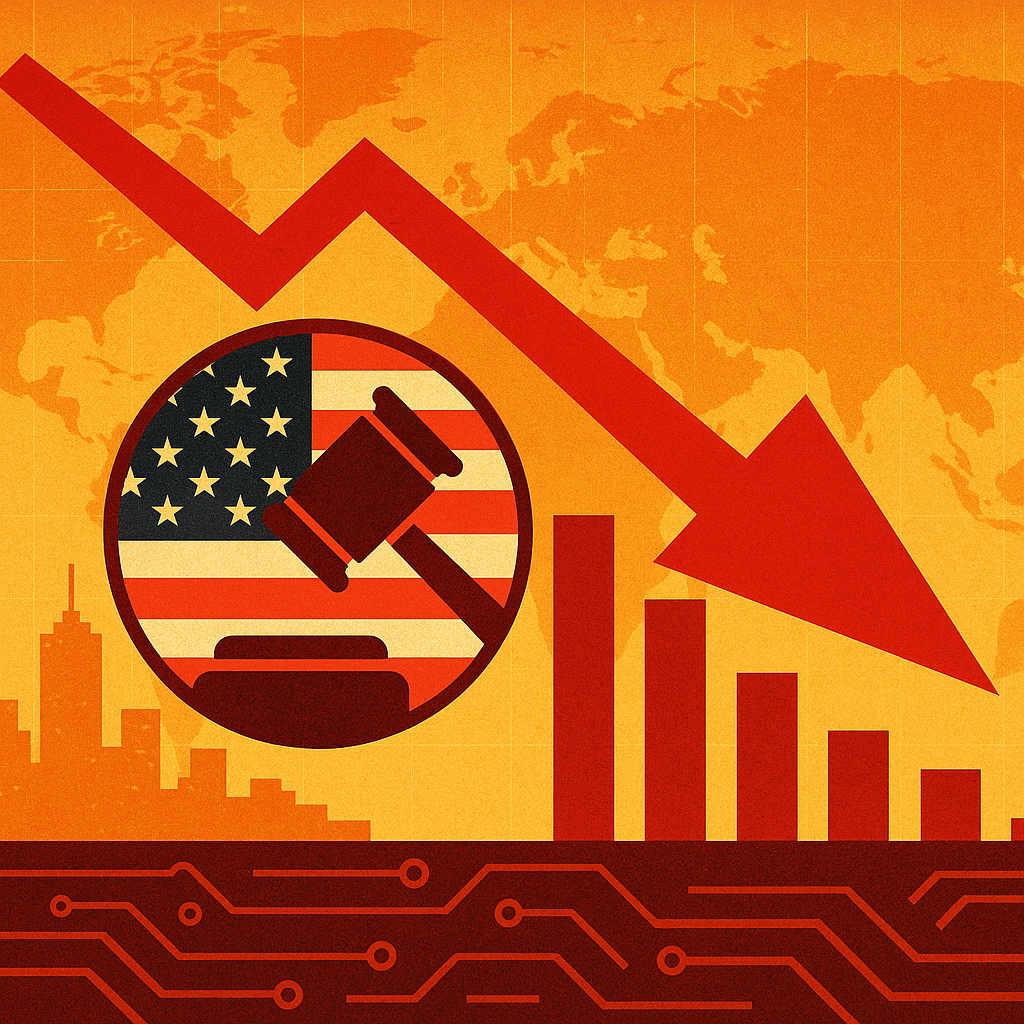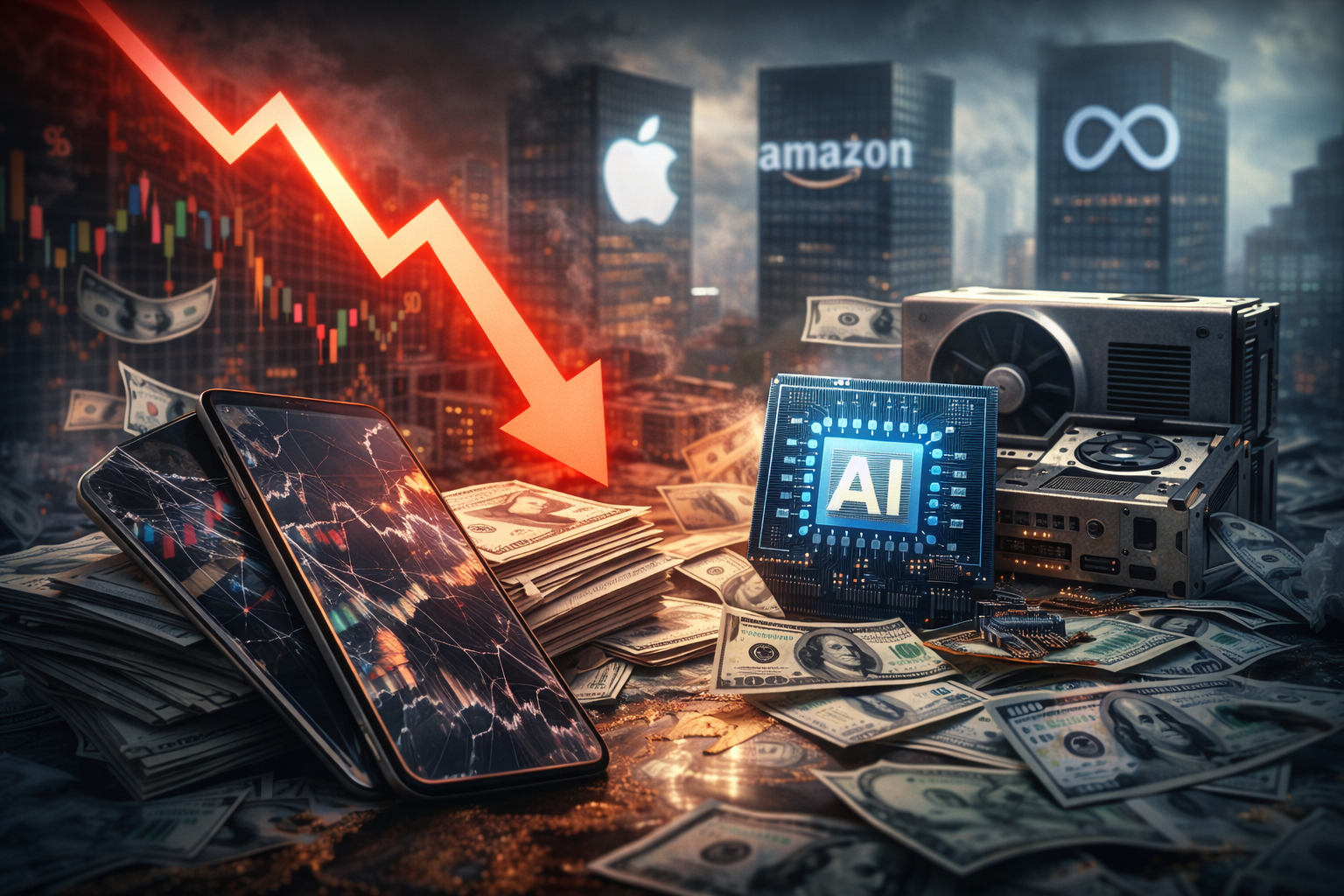A New Era of Economic Uncertainty: Trump’s Tariffs Send Shockwaves Through Wall Street
Investors woke up to a familiar but unsettling reality: Donald Trump’s renewed focus on aggressive trade policy is once again shaking global markets. As the U.S. administration floats sweeping tariffs on goods from China, Mexico, and the EU, major corporations are bracing for turbulence. General Motors and UPS have withdrawn their financial forecasts for 2025, while HSBC has increased its bad debt provisions — warning signs that market participants can no longer ignore.
According to The Guardian, this revived era of economic nationalism is amplifying market volatility, rekindling trade war anxieties not seen since 2018–2020. With equity markets swinging and corporate leaders voicing concern, investors are now tasked with recalibrating strategies to navigate a more protectionist global economic landscape.
Why This Matters for Investors
Corporate Uncertainty Is on the Rise
General Motors and UPS, two bellwether firms with substantial global exposure, cited trade policy uncertainty as a key reason for suspending forward-looking guidance. This move signals a wider corporate hesitation to project earnings in a volatile macroeconomic environment.
Simultaneously, HSBC — one of the world’s largest financial institutions — raised its bad loan provisions by over 20% compared to Q1 last year. The bank pointed to deteriorating global economic indicators, especially in export-dependent economies, as a cause for concern.
“This is not just about tariffs,” said Karen Ward, Chief Market Strategist at J.P. Morgan Asset Management. “It’s about uncertainty — and markets loathe uncertainty.”
For investors, this growing unpredictability makes it increasingly difficult to assess valuation models, growth expectations, and sectoral risk exposure.
A Return to Protectionism: Policy Over Profits?
Trump’s trade stance — emphasizing tariffs as leverage — appears to be a cornerstone of his economic platform heading into the 2026 midterm election cycle. Unlike traditional diplomacy-based approaches, Trump is pushing for immediate economic action: new tariffs on $200 billion in Chinese goods, renewed levies on European auto imports, and potential punitive measures on Mexican steel.
While these moves are aimed at protecting American jobs and industries, the short-term effect has been spiking market volatility. The VIX, often referred to as the “fear gauge,” jumped 18% this week alone. The Dow Jones Industrial Average fell nearly 600 points following Trump’s latest comments on imposing “reciprocal trade duties.”
Sectors Most at Risk
1. Automotive and Logistics
GM’s forecast withdrawal is a canary in the coal mine. Automakers are particularly exposed to tariffs due to complex cross-border supply chains. UPS, a global logistics leader, similarly noted trade disruptions as a potential drag on earnings.
2. Banking and Finance
HSBC’s increased provisions reflect growing concern over credit risks, especially in economies that rely heavily on international trade. Banks with strong emerging market exposure could face ripple effects.
3. Technology and Semiconductors
Any escalation in U.S.-China trade conflict could once again put pressure on tech stocks, especially chipmakers and electronics firms that depend on global manufacturing and distribution.
Key Investment Insight
Investors should consider rebalancing portfolios to manage exposure to sectors most vulnerable to trade headwinds. Diversification into domestic-focused companies, defensive sectors like utilities and healthcare, and quality dividend payers may offer more stability.
Geopolitical risk hedging — via gold, select commodities, or volatility ETFs — could also be prudent, particularly if trade tensions escalate further into the summer.
Future Trends to Watch
- Election-Year Economic Policy: Expect more volatility as Trump pushes a hardline trade narrative in the run-up to November 2026.
- Corporate Earnings Adjustments: Analysts may revise downward expectations for multinationals with heavy export exposure.
- Supply Chain Shifts: Companies could accelerate reshoring or nearshoring efforts to mitigate geopolitical risk, benefiting U.S.-based manufacturers and Mexican infrastructure plays.
Stay Informed with MoneyNews.Today
In a world where headlines move markets and policies reshape profits, MoneyNews.Today brings you the most critical, credible, and actionable news each day. Bookmark us for in-depth investor insights, sector breakdowns, and expert analysis that keeps your portfolio prepared.





